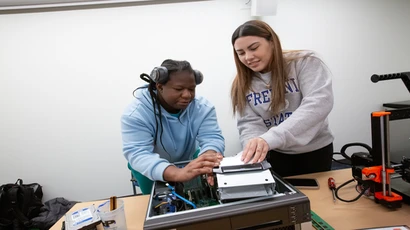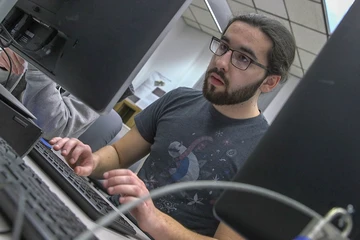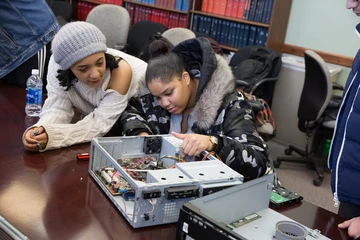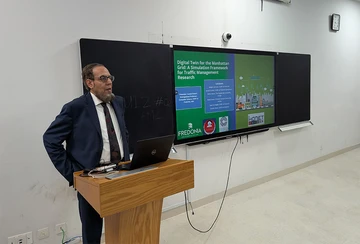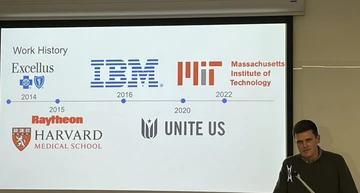Innovate, Code, and Create Solutions
Become a leader in one of the fastest-growing fields. The Computer Science BS Degree at Fredonia equips you with the skills to design software, solve real-world problems, and harness the power of artificial intelligence, computer graphics, and more. Whether you're aiming for a career in software development or scientific computing, this program prepares you to excel.
What You'll Gain:
- Software Design – Learn to build efficient, reliable software from the ground up.
- Artificial Intelligence – Master AI techniques to solve complex, data-driven problems.
- Computer Vision – Explore how machines interpret visual information to interact with the world.
- Scientific Computing – Use computational techniques to solve challenging scientific problems.
- Computer Graphics – Create visual simulations and graphical interfaces for real-world applications.

